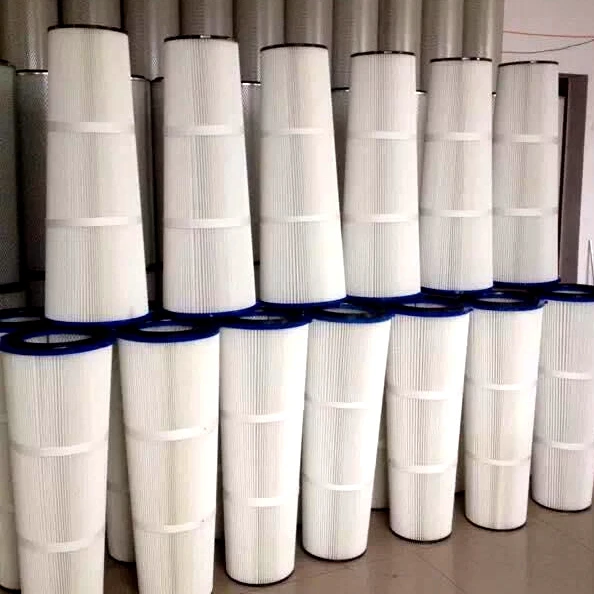 Tel:
+8615930870079
Tel:
+8615930870079
دسمبر . 27, 2024 14:52 Back to list
Air Filtration Solutions for Gas Turbine Performance Optimization and Reliability Enhancement
The Importance of Air Filters in Gas Turbine Operations
Gas turbines are vital components in various applications, including power generation, aviation, and marine propulsion. Their efficiency and reliability are crucial for optimal performance. One essential aspect of ensuring gas turbine integrity and performance is the use of effective air filters. Air filters play a significant role in maintaining the quality of the air that enters the turbine, which directly affects its operational efficiency, fuel consumption, and longevity.
Understanding Gas Turbine Functionality
Before delving into the importance of air filters, it is essential to understand how gas turbines operate. A gas turbine works by drawing air in through its compression system, where the air pressure increases before entering the combustion chamber. Here, fuel is injected, and combustion occurs, resulting in hot gases that expand and drive the turbine, producing power. This process requires a significant volume of clean air to maximize efficiency and minimize emissions.
The Role of Air Filters
Air filters serve to remove particulates and contaminants from the air before it enters the turbine. These contaminants can include dust, dirt, pollen, and other airborne particles that may cause wear and damage to turbine components. By filtering this air, air filters help maintain a clean environment, which is crucial for several reasons
1. Protection of Engine Components Contaminants can lead to erosion and fouling of critical components such as the compressor blades and combustion chamber. Air filters help prevent these particles from entering the engine, thereby extending the life of these components.
2. Improved Efficiency Clean air allows for more efficient combustion in the gas turbine. When the air intake is contaminated, it can lead to incomplete combustion, reducing the overall efficiency of the turbine. A higher efficiency translates to reduced fuel consumption and lower operational costs.
3. Reduced Maintenance Costs By investing in high-quality air filters and ensuring regular maintenance, turbine operators can reduce the frequency and cost of repairs. Contaminated air can lead to more frequent maintenance due to component wear, which can be expensive and time-consuming.
gas turbine air filter

4. Lower Emissions Gas turbines are often subject to strict emissions regulations. Ensuring that the air entering the turbine is free of contaminants can lead to cleaner combustion and lower emissions, helping to meet environmental standards and regulations.
Types of Air Filters
There are various types of air filters used for gas turbines, each designed for specific applications and environments
- Panel Filters Commonly used in industrial settings, these filters capture large particles and are replaceable. Their efficiency and lifespan can vary significantly depending on the specific application.
- V-Bank Filters These are designed for high-efficiency applications and use a V-shaped design to maximize surface area and filtration capacity. They are effective in environments with higher contamination levels.
- Absolute Filters These filters provide the highest level of filtration and are used in sensitive applications where even the smallest particles can cause damage. They are often used in combination with other filters to provide multi-stage filtration.
Conclusion
In summary, air filters are a critical component in the operation of gas turbines. They protect engine components, improve operational efficiency, reduce maintenance costs, and help comply with emissions regulations. Choosing the right air filter for specific operating conditions and ensuring regular maintenance can result in significant benefits for gas turbine operators. As industries continue to focus on efficiency and sustainability, the role of air filters will remain vital in the quest for cleaner and more efficient energy production. Investing in quality air filtration not only extends the life of the turbines but also maximizes their performance, ultimately contributing to more reliable energy sources for the future.
-
Nano Fiber Technology: Revolutionizing Cartridge Dust Collector FiltersNewsAug.06,2025
-
How Activated Carbon Air Cartridges Eliminate OdorsNewsAug.06,2025
-
Dust Filter Cartridge Handling Fine Particulate MatterNewsAug.06,2025
-
Cartridge Dust Collector Filter for Welding Fume ExtractionNewsAug.06,2025
-
Activated Carbon Filter Cartridge Effectiveness Against VOCsNewsAug.06,2025
-
Activated Carbon Air Filter Cartridge Benefits ExplainedNewsAug.06,2025

 Email:
Email:





